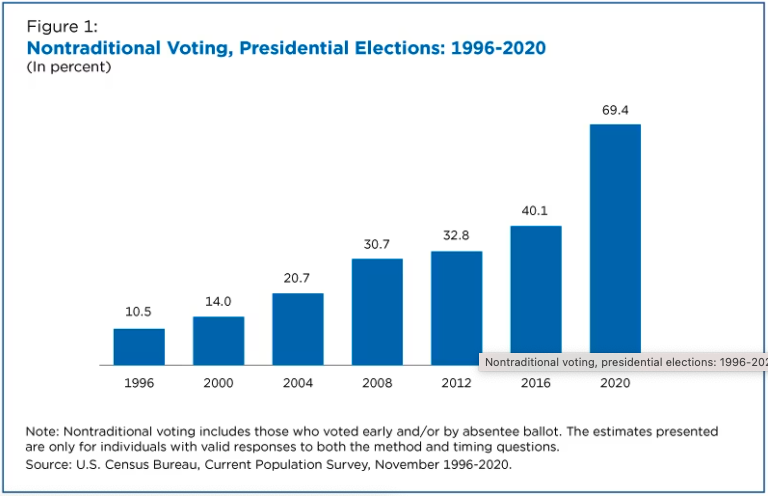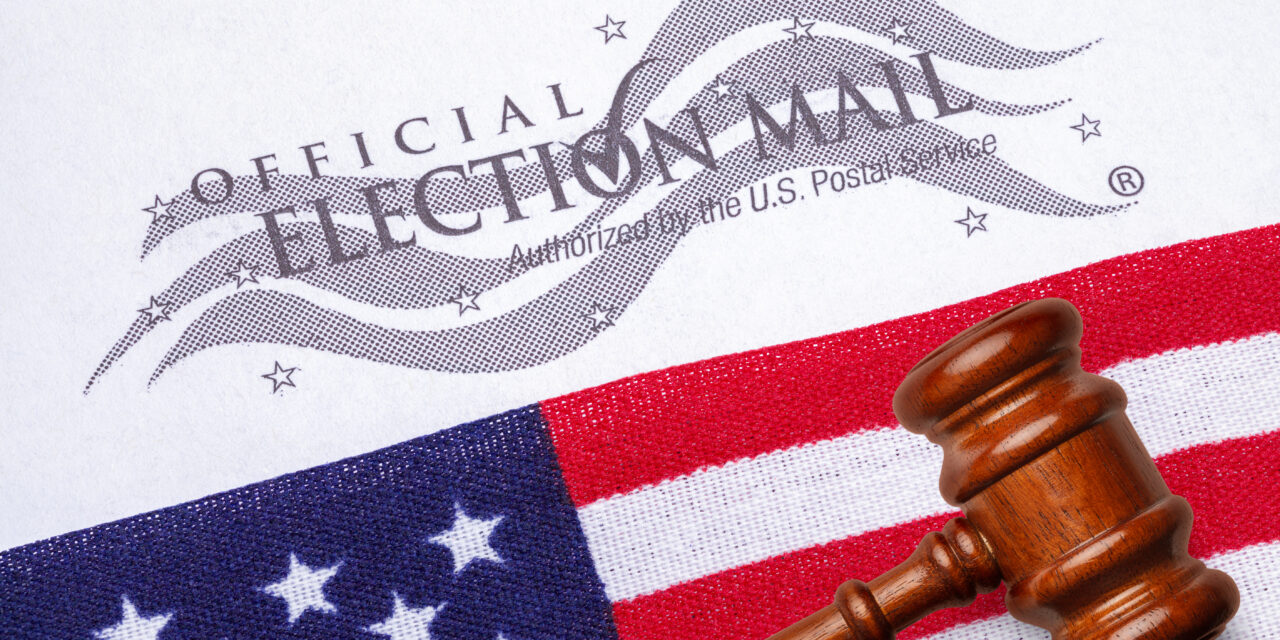Pro-life supporters have lost seven statewide referendums in a row. One potential reason for the loss is that not enough pro-life conservatives and Christians turned out to vote.
But there’s may be a remedy to that problem.
Normally conservatives are adamantly opposed to ballot collecting, or “ballot harvesting,” as it’s also called.
Legal ballot harvesting is the practice of third-party individuals, volunteers, or workers gathering and submitting absentee or mail-in ballots, instead of voters directly submitting their ballot themselves.
Different states have various laws governing ballot harvesting practices, though most states have laws permitting someone besides a voter to return their ballot on their behalf.
Twenty four states permit anyone chosen by the voters to return their mail ballots, while 13 states specify who may return ballots. Twelve states do not specify whether someone can return another voter’s ballot, while one state only permits the voter to do so.
Many states have additional laws governing legal ballot harvesting practices. Colorado, for example, allows any person to deliver completed ballots, but specifies a 10-ballot limit per “ballot harvester,” per election.
Conservatives – who believe in the integrity and transparency of the electoral process – warn that ballot harvesting practices open the electoral process to fraud and abuse.
In 2005, a bipartisan report from the Commission on Federal Election Reform, chaired by former President Jimmy Carter and former Secretary of State James Baker III, concluded that “absentee ballots remain the largest source of potential voter fraud.”
Hans von Spakovsky serves as a Senior Legal Fellow at the Heritage Foundation. He manages of the organization’s Election Law Reform Initiative and is a former member of the Federal Election Commission.
“Mail-in or absentee ballots are the ones most susceptible to being stolen, altered, and forged, and to having the voters be pressured or coerced when voting,” Spakovsky writes, “because they are the only type of ballots marked in an unsupervised, unobserved setting.”
Spakovsky cites the dangers of vote harvesting,
Vote-trafficking states … give political actors with a stake in the outcome of the election the ability to handle a very valuable commodity – the ballots that can ensure the victory (or defeat) of their election or the election of the candidates who they work for and support, giving them the opportunity to complete, alter, or simply fail to deliver those ballots.
And make no mistake, election fraud does occur.
The Heritage Foundation’s Election Fraud Database chronicles 1,465 instances of proven voter fraud, many of which involve vote-by-mail systems.
In 2020, ostensibly due to the COVID-19 pandemic, many states relaxed their election laws and greatly expanded absentee and mail-in voting, leading to a great change in voter behavior.
In the 2020 election, a vast majority (69%) of voters cast their ballots by non-traditional means – by mail and/or before Election Day. As the U.S. Census Bureau notes, “This is the highest rate of nontraditional voting for a presidential election” in history. In 2016, just 40% of voters cast their ballots nontraditionally.

Photo Credit: U.S. Census Bureau
Also in 2020, Mark Zuckerberg aligned groups spent $419 million to influence the election. His groups, the Center for Technology and Civic Life (CTCL) and the Center for Election Innovation and Research (CEIR) poured money into local elections offices – with strings attached.
According to The New York Post, CTCL “demanded the promotion of universal mail-in voting through suspending election laws, extending deadlines that favored mail-in over in-person voting … and created opportunities for illegal ballot harvesting.”
None of this excites confidence in the integrity of the 2020 Election.
Since then, various states – like Florida – have expressly prohibited outside money from funding local elections offices and strengthened their election integrity laws.
But perhaps conservatives should consider another solution as well. Maybe – where it is legal to do so – candidates on the right, and organizations promoting conservative causes, should temporarily embrace mail-in balloting and ballot harvesting.
While leftwing groups and candidates have pushed early voting, absentee voting and mail-in balloting for years, those on the right have shied away from doing so.
There’s no good reason that conservatives should self-impose ballot collection limits upon themselves while leftist candidates and organizations are determined to find and submit every last possible ballot for their preferred candidates.
If left-leaning organizations and candidates can legally ballot harvest, perhaps conservatives should consider doing so too.
Photo from Shutterstock.






